With Springfield landfills filling up faster than expected, many citizens are looking to divert their waste from landfills, or reduce the amount of waste they are producing entirely.
In the Daily Citizen's latest in-depth report on Springfield's landfill, reporter Cory Matteson covered how food waste, construction and economic growth all play a big part in our growing trash problem.
While industry has its (big) role to play, regular residents of Springfield can claim some agency in the city's environmental future.
First and most obvious, be part of the recycling solution. Matteson has more details on Springfield's tools to recycle.
But “greening” your lifestyle is also finding ways to make your spending, eating and consumption habits more environmentally friendly. Finding the right resources to green your lifestyle can be daunting, but Springfield has many low-cost options.
Compost
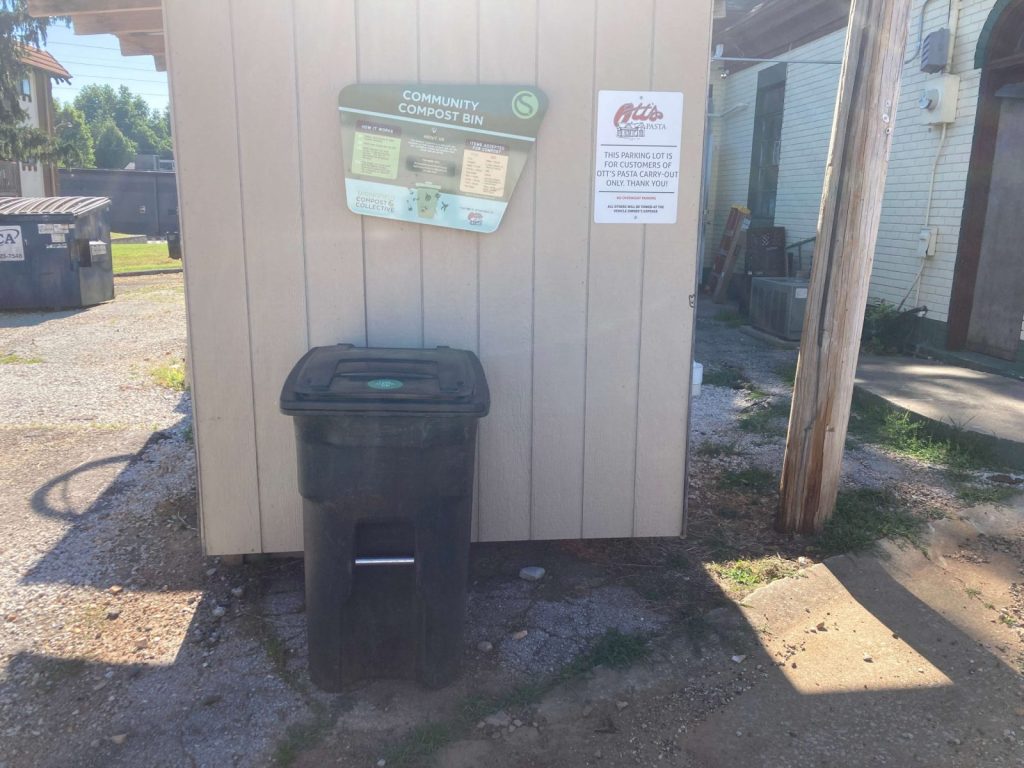
A study conducted by the Missouri Department of Natural Resources in 2016 and 2017 showed that roughly 12 percent of the local landfill is food waste, accounting for 31,000 tons a year. Biodegradable waste like yard clippings and paper waste that end up at the landfill just add to a pile of garbage that could have ended up elsewhere.
This compostable waste can be diverted from landfills by creating a compost bin. Compost bins come in virtually every size and shape. Full compost bins can be emptied into community bins for free at three locations provided by the Springfield Compost Collective, a local nonprofit.
The Springfield Compost Collective also offers residential pickup services for a $20 fee. Many community garden and environmentally focused stores have their own compost bins, which they will let community members compost in as well. At-home compost bins can be set in the yard to avoid the trip to a larger bin entirely.
Approximately 120 tons of food waste are going into the Springfield landfill each day, according to the Springfield Compost Collective. Creating an at-home compost site is an easy and free way to reduce that number.
For a more in-depth guide to composting visit the EPA’s website.
Springfield Compost Collective Locations
C-Street: 299 E. Commercial St.
- Behind the Springfield Commercial Club Building
Cherry Street: 147 E. Cherry St.
- Behind Ott’s Pasta Building
Walnut Street: 413 Walnut St.
- Behind the Downtown Church Building
Community gardens
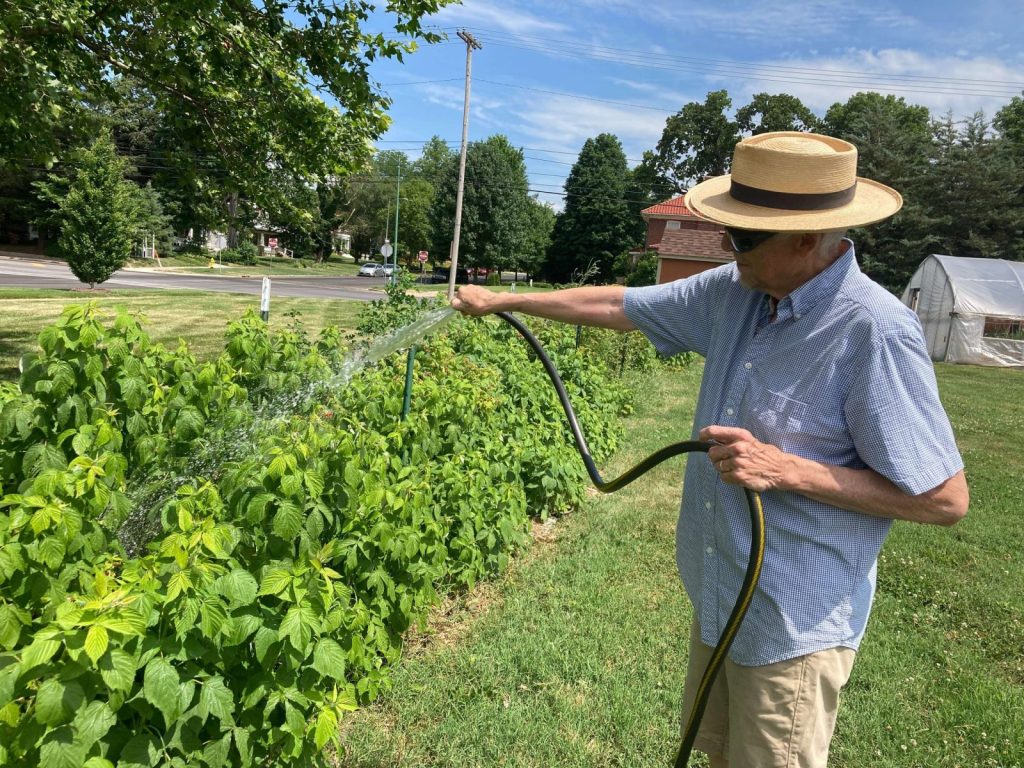
Springfield is home to 17 community gardens and three urban farms. Maintained by volunteers, these gardens create fresh fruits, vegetables and herbs for those in need.
Each community garden provides unique, environmentally friendly services centered around education and food security. Many of these gardens partner with local food pantries or food banks. Excess produce from all gardens is given to Ozark Food Harvest and distributed at Weller Community Church each Wednesday.
Community gardens are a way to start greening your neighborhood by providing produce to your community and educating community members about self-sufficient farming.
More information on how to start a community garden can be found on the Springfield Community Gardens website.
Springfield Community Gardens
- Where: multiple locations
- When: 9 a.m. to 5 p.m.; Monday through Friday; All year round
- Best for: Fruits and vegetables
Farmers markets
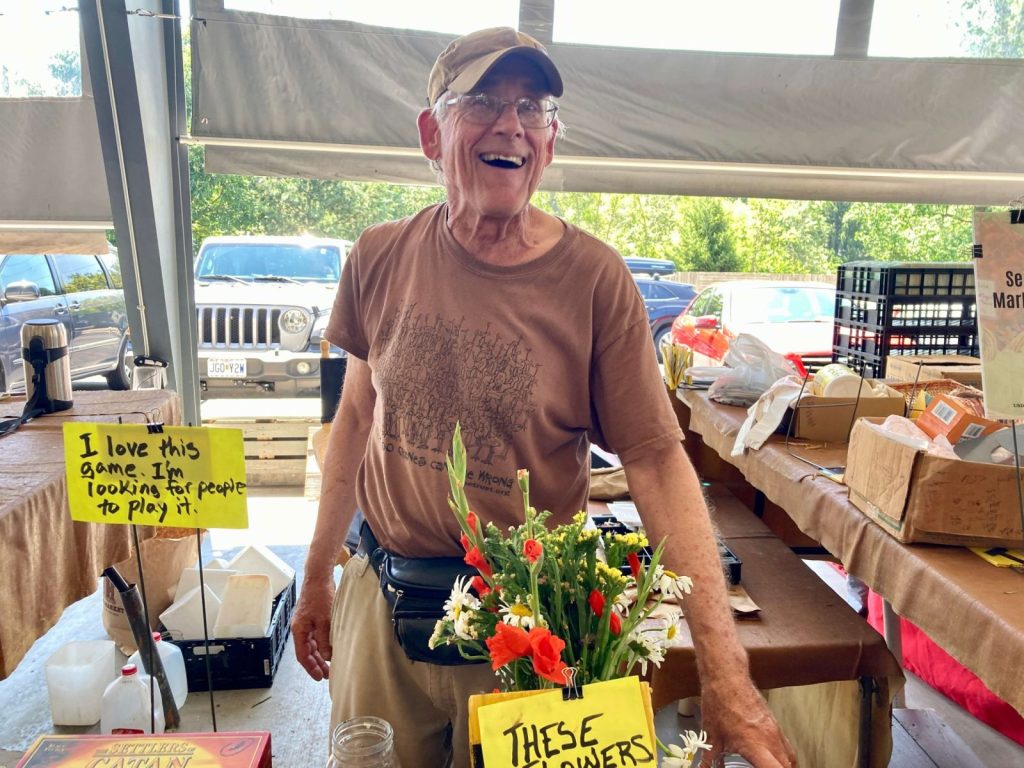
Farmers markets: an oasis of local options. Choosing to purchase these local options reduces carbon emissions because goods that travel fewer miles to get to the consumer create a smaller carbon footprint than many imported products found in stores.
Shopping here is not limited to produce. Farmers markets provide a wide variety of local goods. Many markets sell canned goods, breads, pastries, jewelry and art among other things. The C-Street market in particular is known for its artistic goods.
Buying local goods can also “green” the economy. Circulating money locally strengthens the Springfield economy, and creates more local businesses and jobs.
“If you don’t support those people in your community who are trying to do cool things, then you won’t have those cool things,” the manager of Soap Refill Station, Cory Smalley, said. “We have a lot in Springfield for where we are, and the size that we are. I think that’s largely due to people appreciating local stuff and really appreciating what their fellow community members are doing.”
Most markets are open each Saturday and feature the same vendors selling seasonal items.
Locations of farmers markets
The Greater Springfield Farmers Market
- Where: 2825 S. Glenstone Ave. Springfield, Mo.
- When: 8 a.m. to noon; Tuesday, Thursday and Saturday; April-October
- Best for: Fruits and vegetables
Farmer’s Market of the Ozarks
- Where: 2144 E. Republic Rd. Springfield, Mo.
- When: 9 a.m. to 1 p.m.; Saturday; All year round
- Best for: Breads, pastries and meals
C-Street City Market
- Where: 321 E. Commercial St., Springfield, Mo.
- When: 4 to 8 p.m. Thursday; 9a.m.-2p.m. Saturday; April-October
- Best for: Jewelry, pottery and plants
Community Supported Agriculture programs
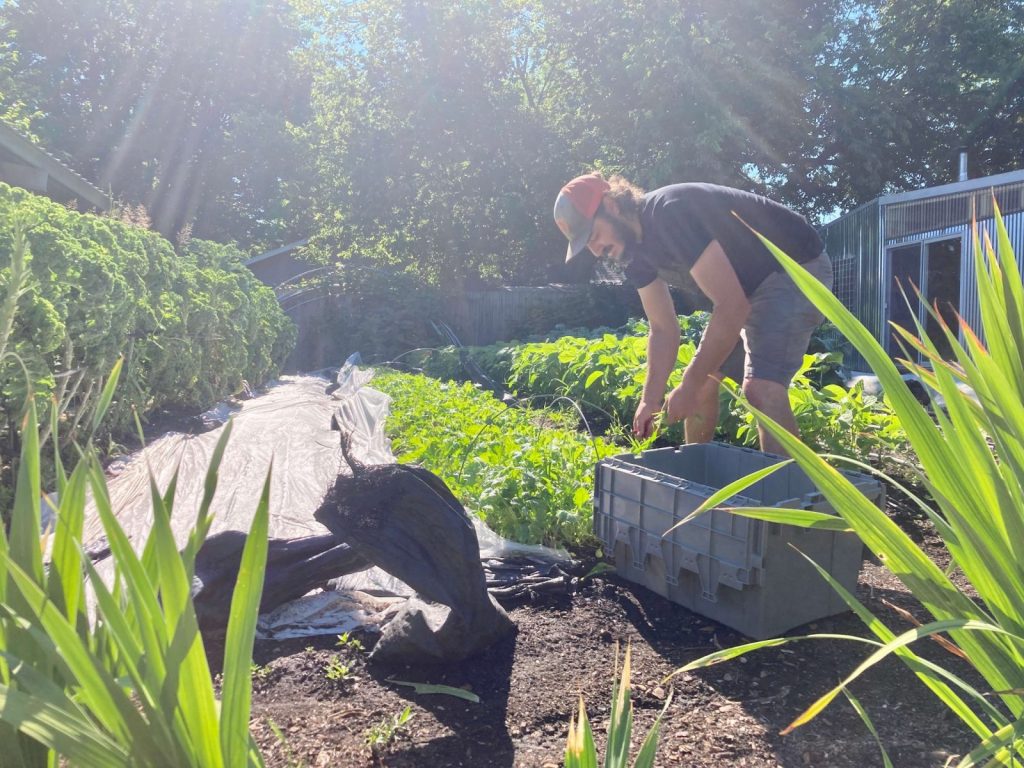
Maybe you don’t have time to go to the farmers market each Saturday, but you still want access to fresh produce without the hassle of shopping around. Consider signing up for a farmer’s Community Supported Agriculture (CSA) or pre-order program.
These programs work similarly to a subscription box. You pay an upfront fee that is essentially investing into the farmer that season. Each week, a local farmer package available produce and deliver it to your door, or leave it at a farmstand for pick-up.
Supporting these local farmers greens the economy like buying from farmer’s markets does. Urban Roots, a local farm offering a CSA program, uses regenerative farming techniques which focuses on “putting back into the land more than you take from it,” Urban Roots manager, Kevin Pratcher said.
CSA programs are designed to benefit smaller, start-up farms, so while it is not guaranteed that each CSA program will practice environmentally friendly farming techniques, it is likely.
Some CSA providers
(Contact Managing Editor Brittany Meiling at bmeiling@hauxeda.com if you know of a local CSA to add to this list)
Sustainable shops
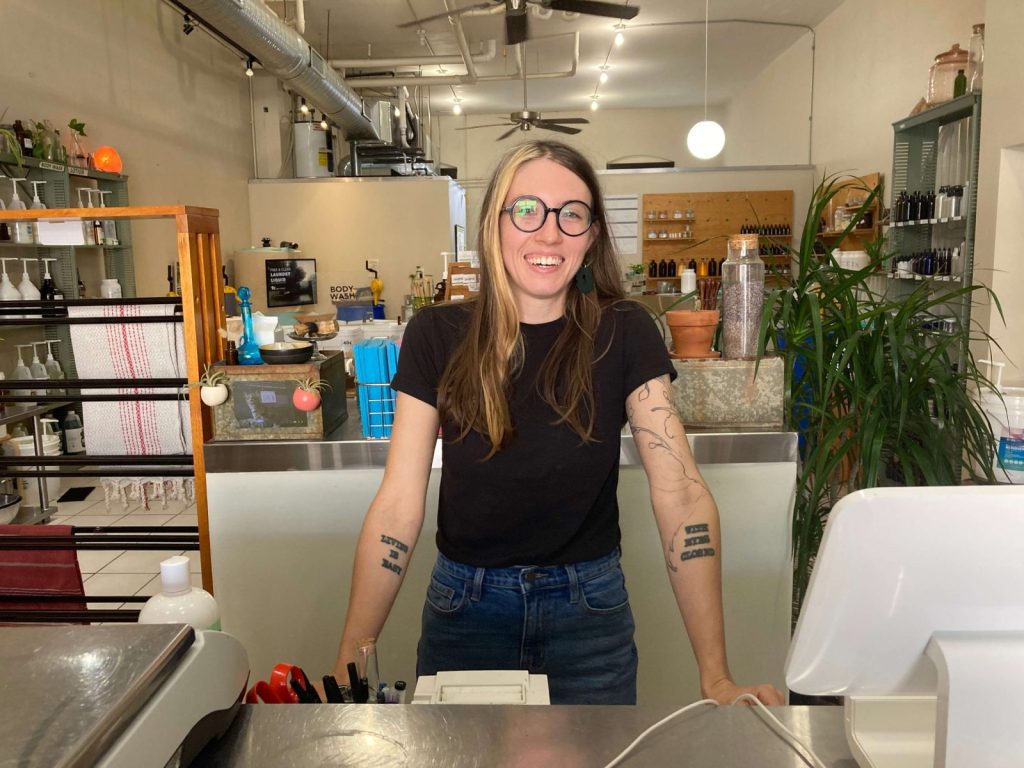
Supporting small businesses does not have to be confined to a weekly market. Springfield is home to several brick-and-mortar “green” small businesses.
These businesses provide the same ethos as farmers’ markets and CSA stands.
The Soap Refill Store on Campbell Ave. aims to reduce waste by letting customers refill their basic household products such as laundry detergent, shampoo and hand soap.
Beyond household products, there are several natural markets in town that source local food items. One of those stores is Counter Culture, a neighborhood market on Pickwick.
Counter Culture
- Where: 607 S. Pickwick Ave. Springfield, Mo.
- When: 8 a.m. to 8 p.m.; Monday-Saturday
- Best for: Produce and vegetarian foods
Soap Refill Store
- Where: 201 S. Campbell Ave. Springfield, Mo.
- When: 10 a.m. to 6 p.m. Monday-Saturday *Open till 8 p.m. on Thursday
- Best for: Soaps and housekeeping supplies
Springfield Mercantile Co.
- Where: 326 E. Commercial St. Springfield, Mo.
- When: 11 a.m.- 2 p.m. Saturday
- Best for: Household products
RELATED STORY
Tipping the scales: Springfield landfill filling up faster each year
Atop a plateau of strategically layered soil and trash at the Noble Hill Sanitary Landfill, there is a machine that looks a bit like a derailed train car. It’s called a tipper, and if you hang out at the landfill for about 20 minutes, odds are you’ll see why it’s called that.



